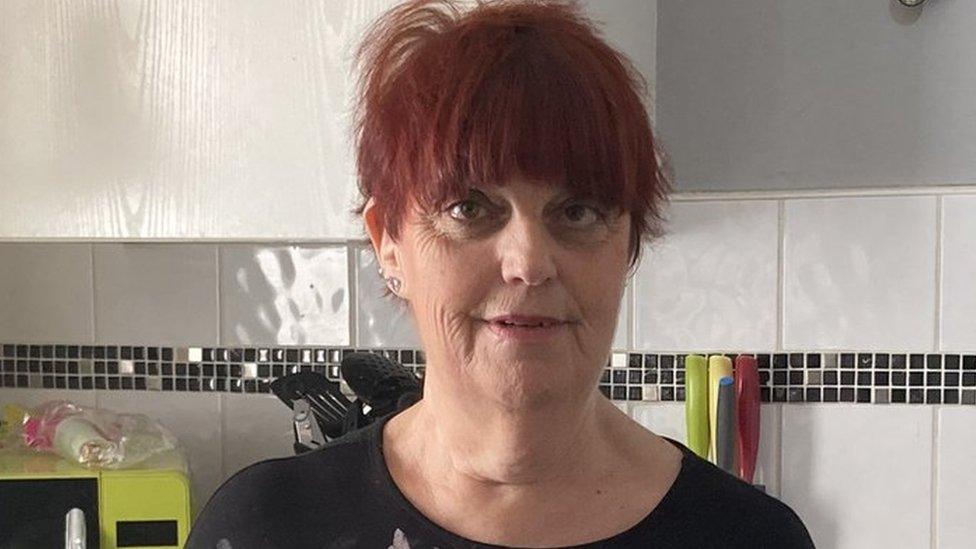Cost of living: Penrhys residents struggle to make ends meet
- Published
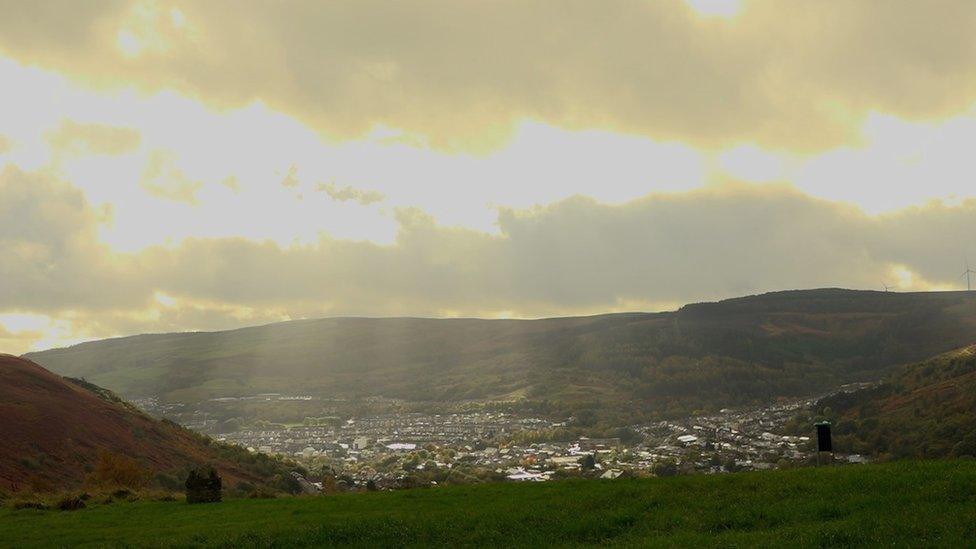
The Penrhys estate has wonderful views, but is facing serious problems
In one of Wales' poorest communities, people are having to choose between food and electricity as the fear of being evicted hangs over them.
Views from Penrhys, high on a mountain above Rhondda Cynon Taf, are stunning, but the outlook is bleak for some.
Welsh government data says it is the country's fourth most deprived community.
About 47% of people are already in income deprivation, with food aid now being distributed daily.
"The times right now are probably the worst they have been," community volunteer Neil Thomas told the Newyddion S4C programme, external.
Inflation has hit 10%, and with the cost of everything from milk and bread to petrol and gas spiralling, people are finding it harder and harder to get by.
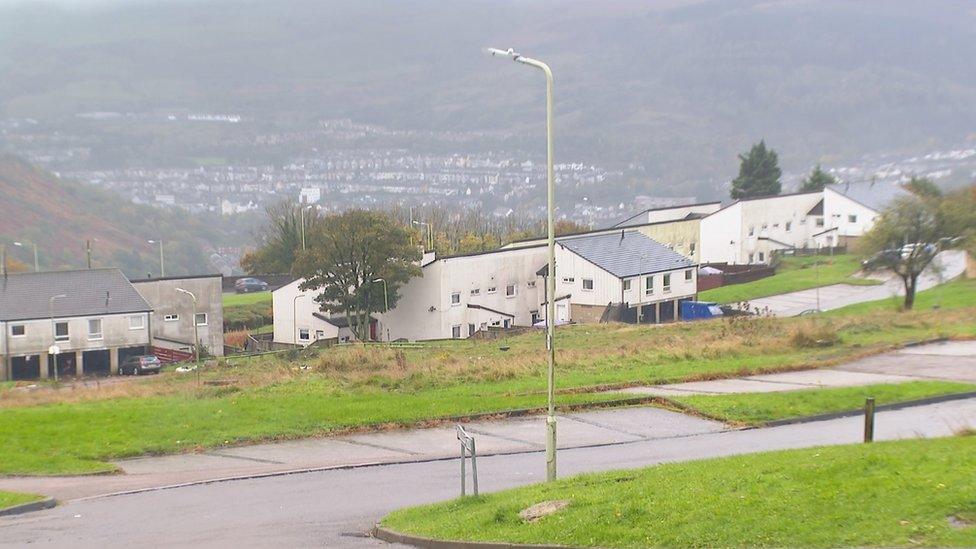
Built 60 years ago, many houses on the estate have seen better days
"The biggest problem is the cost of living," said Mr Thomas, who volunteers at the Llanfair Church Community Centre.
"People are choosing between electric and having food… keeping the electric on is one of the biggest things in almost every household.
"Even that's got to come before the gas, so people are freezing. And you take in how many people are being evicted as well. It is dire right now."
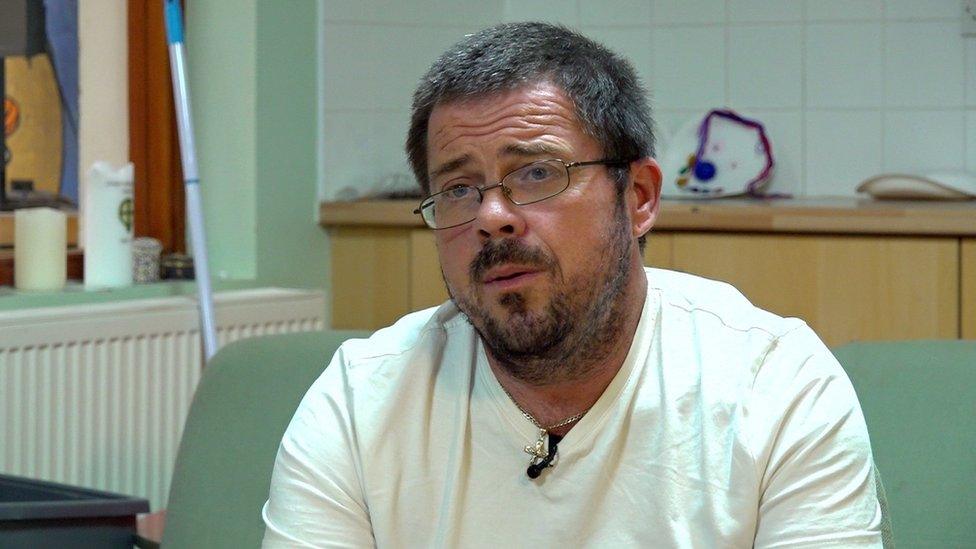
Neil Thomas is delivering more and more food aid to local people
Mr Thomas puts in 12-hour shifts to help, delivering food packages to families.
The centre currently distributes 10 loads a week. That is the highest it ever has been, with Mr Thomas adding: "This year, there's a massive difference.
"People aren't putting their gas on. The food bank requests are much higher because people are genuinely struggling, and that's a blanket effect. That's a lot of people who are struggling, not just one or two."
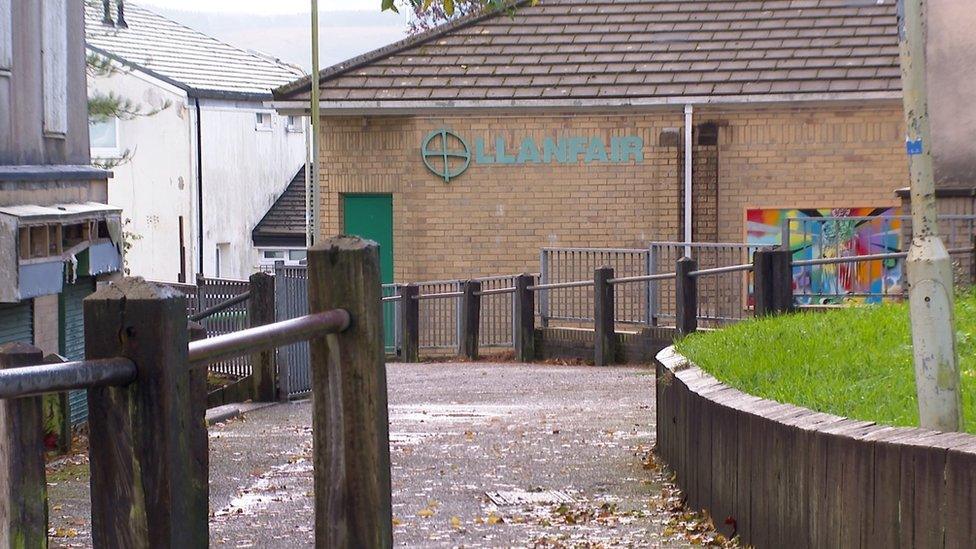
The centre is helping to give hope to locals during tough times
A small cafe in the centre sells reduced price food, and Sharon Rees, who has run it for 30 years, said it was getting noticeably busier.
"People are just glad to come out of their homes to a safe place and of course now that the weather is changing, it's warm here, so it's more important than ever before," she added.
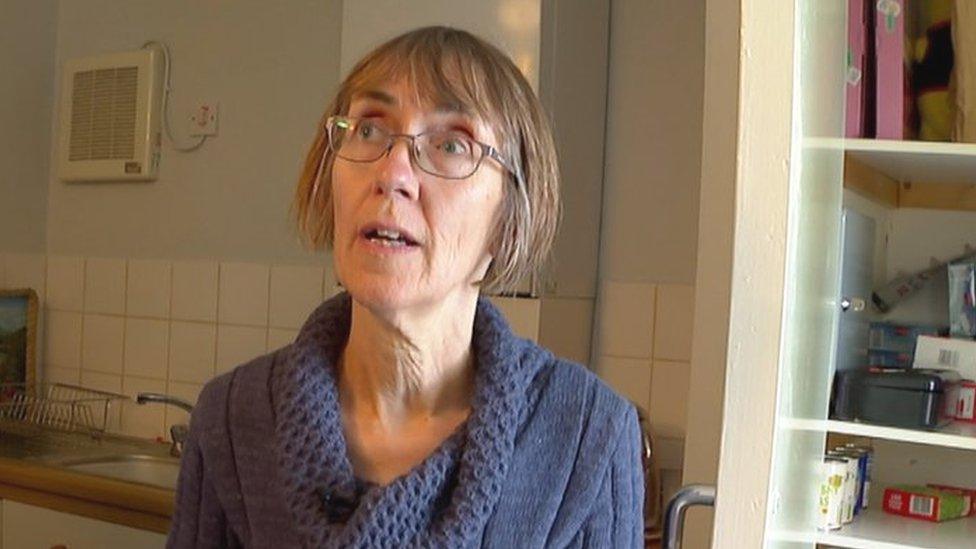
Sharon Rees is glad to offer somewhere for local people to come and relax and chat
The first two cups of tea and coffee are free, with the door open for anyone who fancies a warm space and some company.
Upstairs, there is a room full of clothes, furniture and a corner cupboard where the foodbank supplies are stored.
Ms Rees said: "We've had many individuals and families who were homeless come to live locally, and they need a lot of things."
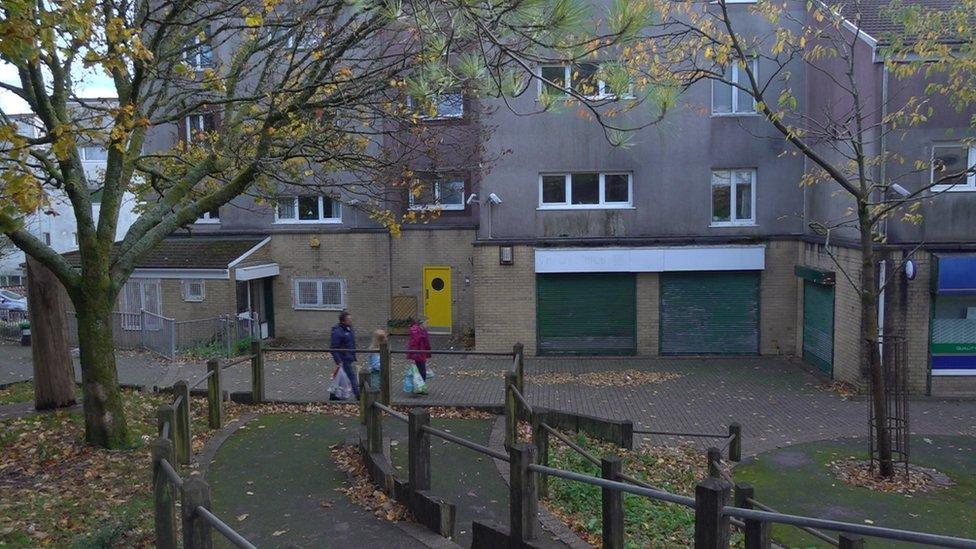
Volunteers go out to deliver food packages on the estate
While she is constantly surprised by people's generosity in tough times, she fears "more desperate times" are yet to come.
"People are always ready to help each other in a crisis," said Deborah Young, who has lived in Penrhys for 49 years.
She said she gets by, but living on her on her own was becoming more difficult.
Within a fortnight she has used £47 of the £66 given to her under the UK's government energy bills support scheme for her two-bedroom flat.
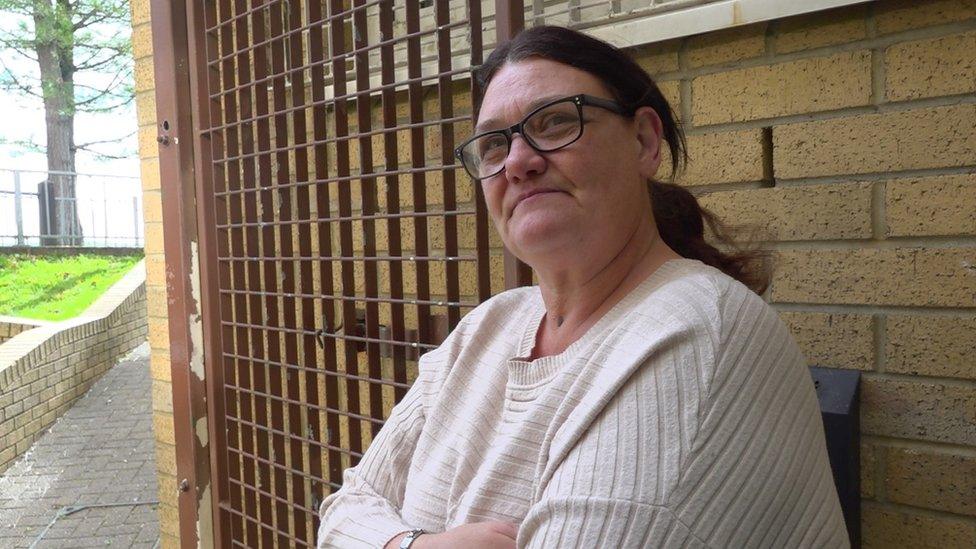
Deborah Young now lives in just one room of her flat
"I live in the one room instead of heating all the house up," she said.
'Now we've got nothing'
Like many other locals, the centre gives her a secure and warm space, with Joan Morris saying: "Most people won't be able to survive through this to be honest with you.
"Now, we've got nothing. We've only got so much money to live on in the first place and the cost of living is rising and rising and rising, and I think it's disgusting."
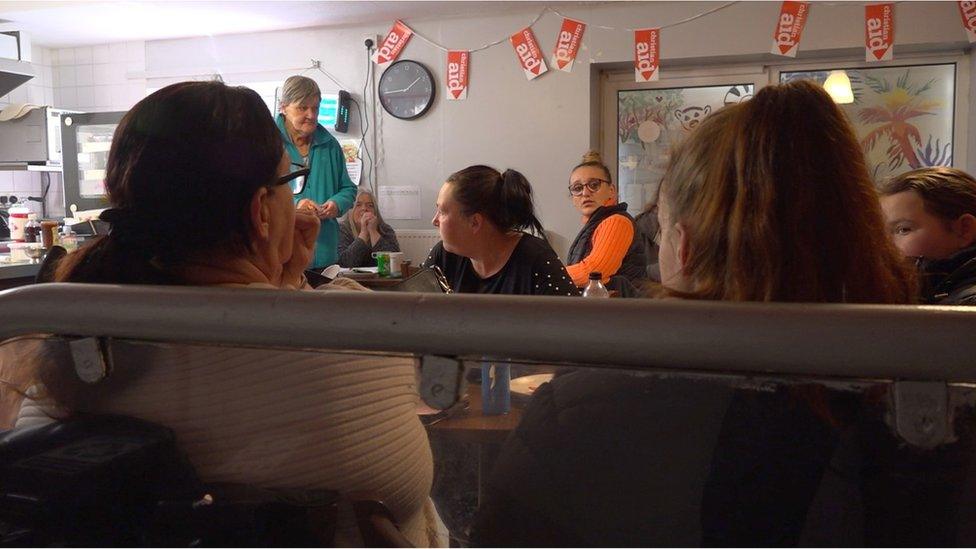
The cafe has become a focal point for locals to chat and get a cooked meal
Despite the challenges, volunteers believe the community is fortunate - as they work with Rhondda Cynon Taf council officials and the Trivallis housing association.
It means various forms of help is available, such as financial advisors visiting each month.
There is also a homework club for children and events arranged for young people from beatboxing to arts and crafts and game nights.
The centre is part-funded by donations from the church, but also relies on grants that are constantly applied for and that are increasingly harder to come by.
Volunteers such as Mr Thomas also fear more support will be needed after Chancellor Jeremy Hunt announced energy bill help will be reduced from April 2023.
He thinks we will see more houses in darkness, adding: "As the weather gets colder, people will start struggling a lot more because they're already not putting the heating on now."

WHAT'S KILLING OUR RIVERS?: Wyre Davies investigates what and who is to blame

Related topics
- Published22 October 2022
